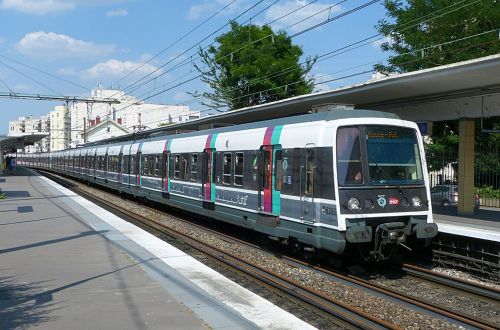PARIS Transport Authority (RATP) has reported an Ebit of €99m in the group’s 2020 financial results, a reduction of 69% year-on-year compared with €319m reported in 2019.
Net income also fell by 202% to deliver a net loss of €134m in 2020, compared with a net profit of €131m in 2019.
The group’s turnover fell by only 3.2% from €5.7bn in 2019, to €5.5bn in 2020, but net debt rose 7% year-on-year, to €5.5bn at the end of 2020.
RATP cites the Covid-19 crisis as well as strikes which occurred in January 2020 as the key factors behind 2020’s poor financial results. However, the group says that savings plans implemented by the group has enabled it to cushion the year’s negative fiscal results to some extent.
RATP estimates that the Covid-19 pandemic resulted in an annual turnover reduction of approximately €259m. This includes a shortfall in passenger revenue of €900m due to a 43% reduction in passengers in the Île-de-France region, as well as similar reductions on networks operated by RATP Dev in France and abroad. However, this loss was partially offset by €751m from RATP’s revenue risk sharing mechanism with Île-de-France Mobility (IdFM).
The group also suffered a reduction in ancillary revenue from shops, advertising, fines and the Orlyval airport shuttle due to the pandemic, with an estimated loss of approximately €103m.
However, RATP says that it remains committed to its investment programmes in Île-de-France, with investments in the region reaching the historic level of €2.2bn in 2020, up 3.4% compared with 2019. Major investments include:
- the modernisation of the network and infrastructure (€1.02bn), including the renovation of MI2N (RER A) and MI84 (RER B) fleets, renewal of metro trains (programme MF19), continuation of renewal of the RER A tracks, automation of line 4, and modernisation of Line 6.
- the extension of the metro and tram lines (€1.01bn), including the commissioning of the Mairie de St Ouen Line 14 extension in December; the extension of the T1 light rail line to Asnières and T3B towards Porte Dauphine; and the continuation of work on further extensions to lines 4, 11, 12 and 14, and
- other improvements to the quality of services (€169m), including renovations of stations; the creation of additional accesses and improvements to passenger information systems.
The group also reports that it signed several new contracts in 2020, including for the operation of Cairo Metro Line 3, and for the operation of Tuscany’s bus network. It has also created a new subsidiary, RATP Cap Île-de-France, to respond to tenders in Île-de-France.
In addition, the group accelerated its Mobility as a Service (MaaS) programme through developments such as the acquisition of map software company Mappy.
“The unprecedented health crisis we are experiencing has strongly weighed on the group's results in 2020,” says Ms Catherine Guillouard, CEO and board chairman of RATP. “However, I also want to remember from the year 2020 the flawless mobilisation of the employees of the RATP group, which made it possible to ensure the continuity of a public service essential to the proper functioning of the country and resolutely pursue the major development and modernisation projects for the Ile-de-France transport network, in particular with commissioning in December 2020 of the extension of Line 14 to Mairie de Saint-Ouen.
“In this difficult period, we have also progressed at a steady pace in the preparation of the group. RATP opened its historic market to competition and accelerated our development, with the signing of major contracts in Tuscany and Egypt and the launch of new activities serving cities. The resilience shown by the company during this difficult period makes me confident in our ability to meet the major challenges ahead: opening up to competition in Île-de-France, development in France and abroad, major conversion of our industrial assets and the pursuit of our major metro and tram line extension projects for the benefit of Île-de-France residents.”

